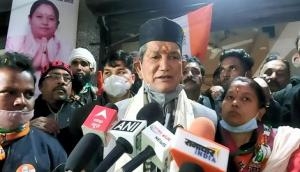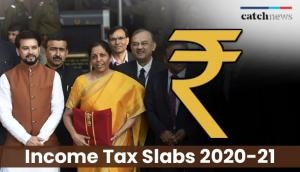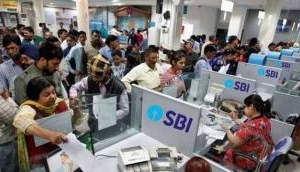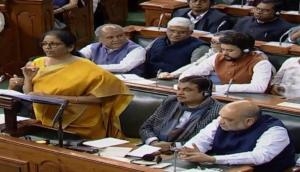
Prof Ravi Srivastava teaches at the Centre for the Study of Regional Development, Jawaharlal Nehru University. He specialises in labour and migration studies, informal economy, agrarian relations, poverty, and economics of education and health.
He is a former member of the National Commission of Enterprises and has served on several committees of the University Grants Commission and the erstwhile Planning Commission. Catch spoke with him about Budget 2017.
What's the overall sense you get from Budget 2017?
It's an extremely conservative budget. Small incremental hikes have been announced in key sectors that have long been crying for increased spending. There has been a modest increase in the health sector and in the rural development sector. Even urban development has seen a small increment. Education's share in total spending has actually gone down. Revenue projections are also on the conservative side. There was talk about the possible announcement of some kind of a bonanza but all such expectations have been belied.
What do you think is the reason behind the government taking this conservative approach?
The government seems to be factoring in the impact of demonetisation as well as the global economic uncertainty. The Economic Survey said that our banks are in far worse shape than we would expect them to be in post demonetisation. Yet, the Rs 10,000 crore given to them for recapitalisation is the same as last year. There is a clear realisation of the lack of fiscal space. Chief Economic Advisor Arvind Subramanian has also been pushing the government towards fiscal consolidation.
Have at least a few positives been squeezed in this budget?
Well, the lowering of income tax for small enterprises is a good move. The lowering of tax rate for individual taxpayers, however, is a modest move.
The finance minister proudly announced that a major reform in the budget this year is the removal of plan and non-plan classification of expenditure. He said it will facilitate a holistic view of allocations for sectors and ministries. What benefits do you see of the removal of this distinction?
I really don't see any benefits. In fact, its result will be that ministries and departments won't know how much money they will have to spend. The UGC, for example, won't know which scheme to continue, which to shut down. It will bring about a cluelessness about the direction of spending regarding schemes.
The abolition of the Foreign Investment Promotion Board has grabbed headlines. Do you see any benefits of this move?
See, the FIPB was in any case being diluted since the UPA's time. More and more projects were being put on the automatic route. The key question to ask is what will it actually translate into? Liberalisation of the FDI regime? If yes, then in which sectors?
Another big announcement was about a model law on contract farming. How do you make of that?
Many states already have contract farming laws. So, in that sense, there is nothing new in it. In any case, it's not a central subject, so we will have to see how states react to a central legislation. But it doesn't automatically mean that it will pave the way for corporate farming. For that, abolition of land leasing laws will be required, something for which the industry has been pushing for a long time.
But I am not in favour of leasing of land more than the prescribed limit under existing land ceiling laws.
What are the measures the government could have announced in this budget but hasn't?
The Universal Basic Income, which the economic survey talked about, is nowhere on the horizon. This government has been talking so much about it. It could have actually gone ahead and announced it for one section of the population - old-age pensioners. The Rs 200 pension they get now is a slap on their face. The government could have brought this in as a Direct Benefit Transfer.
A lot was needed to be done to revive manufacturing and jobs. A two-month interest waiver, like was announced for farmers, could have been announced for MSMEs. Small industries are among the biggest sufferers of the effects of demonetisation and such a move could have really helped them.








![BJP's Kapil Mishra recreates Shankar Mahadevan’s ‘Breathless’ song to highlight Delhi pollution [WATCH] BJP's Kapil Mishra recreates Shankar Mahadevan’s ‘Breathless’ song to highlight Delhi pollution [WATCH]](https://images.catchnews.com/upload/2022/11/03/kapil-mishra_240884_300x172.png)

![Anupam Kher shares pictures of his toned body on 67th birthday [MUST SEE] Anupam Kher shares pictures of his toned body on 67th birthday [MUST SEE]](https://images.catchnews.com/upload/2022/03/07/Anupam_kher_231145_300x172.jpg)






